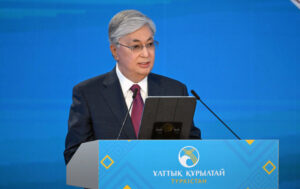From the World of Skills…!

Pakistan Skills Impact Bond (PSIB): A Game-Changer for Skills Development in Pakistan
The Pakistan Skills Impact Bond (PSIB) has been approved by the Economic Coordination Committee (ECC), marking a groundbreaking step in the country’s efforts to modernize its Technical and Vocational Education and Training (TVET) sector. This innovative financial mechanism will not only attract private investment into TVET but also reduce the dependency on public funding, driving economic growth and job creation in Pakistan.
The National Vocational and Technical Training Commission (NAVTTC), established in 2006, has long been at the forefront of providing market-driven vocational training. As the main body responsible for enhancing skills development across Pakistan, NAVTTC is now embarking on a new initiative to address the growing demand for skilled labor, both domestically and internationally. With the fast-changing technological landscape, the PSIB aims to equip the youth with the skills needed to meet the evolving needs of the global job market.
The PSIB offers a strategic solution to the challenges faced by Pakistan’s TVET sector. It is designed to attract private capital, easing the financial burden on the government while improving the scale, quality, and effectiveness of skill development programs. The initiative aims to create a skilled workforce that can contribute to national development by increasing productivity, reducing unemployment, and breaking the cycle of poverty, which will ultimately lead to inclusive and sustainable economic growth.
This bond represents a significant shift from traditional education funding models, moving from supply-driven training to demand-driven training. Under the PSIB, funding will be linked to measurable social outcomes, such as the employment and sustainability of graduates in skilled jobs. Risk investors will provide the initial capital.
The pilot phase of the PSIB will see the issuance of a Rs. 1 billion bond, backed by a sovereign guarantee from the government. This financing model is expected to lay the foundation for future engagement of private investors, with a focus on ensuring that the funds are used to enhance the effectiveness and reach of TVET programs across the country. The Bank of Punjab (BoP) has been selected as the Risk Investor for this bond, after an evaluation process was conducted by the Evaluation Committee.
The Special Investment Facilitation Council (SIFC), which has already approved the financing, along with the Finance Division’s endorsement, signifies that the bond has been thoroughly vetted and is now ready for implementation. With the ECC’s approval of the Rs. 1 billion government guarantee, the PSIB is poised to attract further investments from international development partners like ADB, BAT, KOICA, and others who will serve as outcome funders or strategic contributors.
Countries like the UK, India, Vietnam, and Turkey have already successfully implemented SIBs, particularly in the education and public health sectors, and have attracted significant foreign investment. For example, India’s use of SIBs has brought in over $600 million in Foreign Direct Investment (FDI). This success story demonstrates the potential for PSIB to drive not only local but also international investment into Pakistan’s TVET sector.
As the PSIB progresses, it will provide clear results through its outcome-based approach. These results will be continuously monitored and evaluated, ensuring that every penny invested is directed towards producing measurable improvements in the quality of skills training, employability rates, and overall economic impact. This will be a turning point for Pakistan’s TVET sector, as it aligns training programs with real-world job market needs and fosters a more competitive workforce.
The PSIB will also address key gaps in social inclusion by providing equitable access to skills training for marginalized groups, including women, minorities, and people with disabilities. By ensuring that these groups are trained and successfully integrated into the workforce, the PSIB will contribute to the economic empowerment of vulnerable populations and will help bridge the inequality gap in Pakistan’s labor market.
PSIB marks a milestone in Pakistan’s efforts to modernize its skills development system. It will transform the landscape of the TVET sector, attracting both domestic and international investments, while providing young people with the tools they need to succeed in today’s fast-paced job market. As the program rolls out, it has the potential to not only change the lives of millions of young Pakistanis but also to contribute to the long-term economic stability and prosperity of the country. The PSIB is undoubtedly a game-changer for the future of Pakistan’s workforce.

